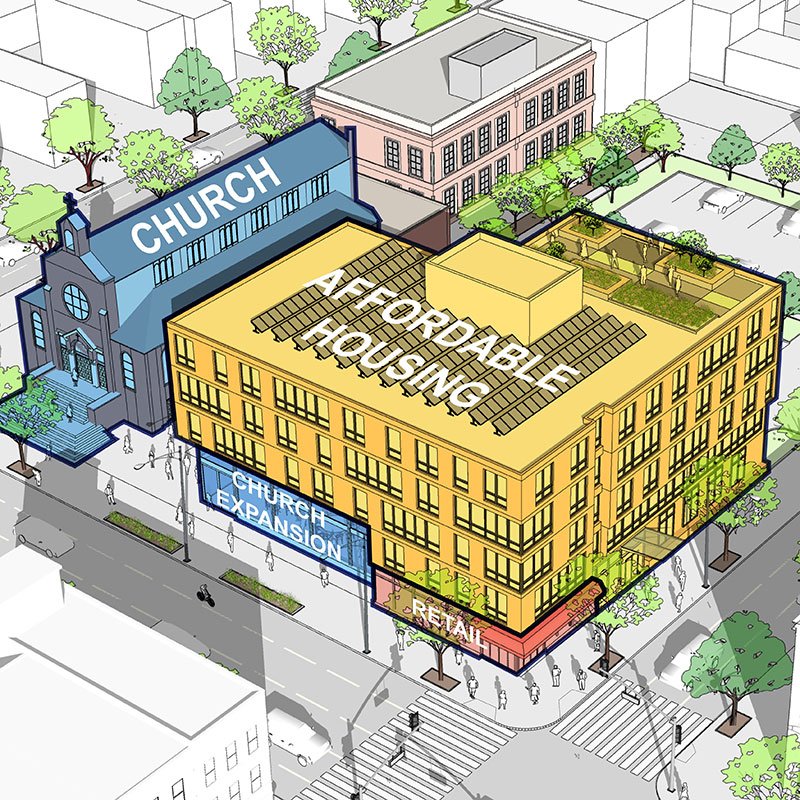What NYC’s ‘City of Yes’ Zoning Changes Mean for Developers and Property Owners
The City of Yes – A Game Changer for NYC Development
New York City’s ambitious City of Yes zoning reform is set to reshape the city’s housing landscape. Approved in December 2024, this initiative introduces major zoning changes aimed at increasing housing supply, reducing outdated restrictions, and modernizing regulations to align with the city’s future growth.
For developers, property owners, and architects, understanding these changes is crucial. In this article, we break down what the City of Yes means for residential, commercial, and mixed-use developments, along with key takeaways to help navigate the new zoning landscape effectively.
1. More Housing Opportunities Across NYC
A major goal of the City of Yes initiative is to increase housing supply, particularly in areas where restrictive zoning has limited growth. The changes include:
Ancillary Dwelling Units (ADUs): Property owners in low-density districts can now add secondary units (ADUs) to their homes, helping to increase affordable housing options. Relaxed Density Rules: New allowances for small-scale apartment buildings in districts that were previously limited to one- and two-family homes. Conversions Encouraged: Easier conversion of commercial and industrial buildings into residential units to meet housing demand.
What This Means for You: If you own property in a low-density zone, you may now be able to build additional units or convert existing spaces into housing without excessive red tape.
2. Parking Requirement Reductions – A Boon for Developers
Parking minimums have long been a hurdle for development in NYC. The City of Yes zoning changes bring significant relief:
Elimination of Parking Minimums in high-transit areas, particularly in the newly designated Inner Transit Zones. Reduced Parking Requirements for affordable housing projects citywide. Flexible Use of Existing Parking: Property owners can now convert previously required parking spaces into more useful spaces.
Impact on Developers: These changes lower construction costs and make projects financially viable in transit-rich areas.
3. Streamlining Zoning for Economic Growth
City of Yes isn’t just about housing – it’s about modernizing outdated zoning laws to encourage economic development. Changes include:
More Flexible Mixed-Use Development: Easier ground-floor commercial use in residential buildings along major corridors. Faster Approvals for Small Businesses: Reduces zoning barriers for businesses to expand or modify their spaces. Adaptive Reuse of Vacant Buildings: More opportunities to convert underutilized properties into productive assets.
For Business Owners & Developers: These reforms mean more investment opportunities and faster approvals for commercial and mixed-use projects.
4. Affordable Housing & UAP Program – Maximizing FAR
The Universal Affordability Preference (UAP) program replaces older inclusionary housing models, giving developers a powerful new incentive:
Up to 20% More Floor Area Ratio (FAR) for developments that include affordable housing. Higher Density Allowed in mid- and high-density zones. Streamlined Approval Process for affordable projects.
Key Developer Advantage: If you include affordable housing in your project, you gain extra building rights, making development more lucrative.
How Green Light Expediting Can Help
The City of Yes zoning changes open new doors, but they also require careful navigation to maximize benefits. At Green Light Expediting, we specialize in:
Zoning Analysis – Helping you understand what’s possible on your site.
Permit Expediting – Ensuring fast-track approvals for your projects.
Development Strategy – Optimizing your project to take full advantage of the new zoning rules.
Contact us today to see how you can benefit from NYC’s biggest zoning reform in over 60 years!
Final Thoughts
The City of Yes initiative is a game-changer for NYC’s real estate industry. Whether you’re a developer, property owner, or architect, these new zoning changes can unlock new opportunities and increase project feasibility. Staying informed and working with experts like Green Light Expediting ensures you make the most of these reforms.
Have questions about how these changes affect your project? Let’s talk!

